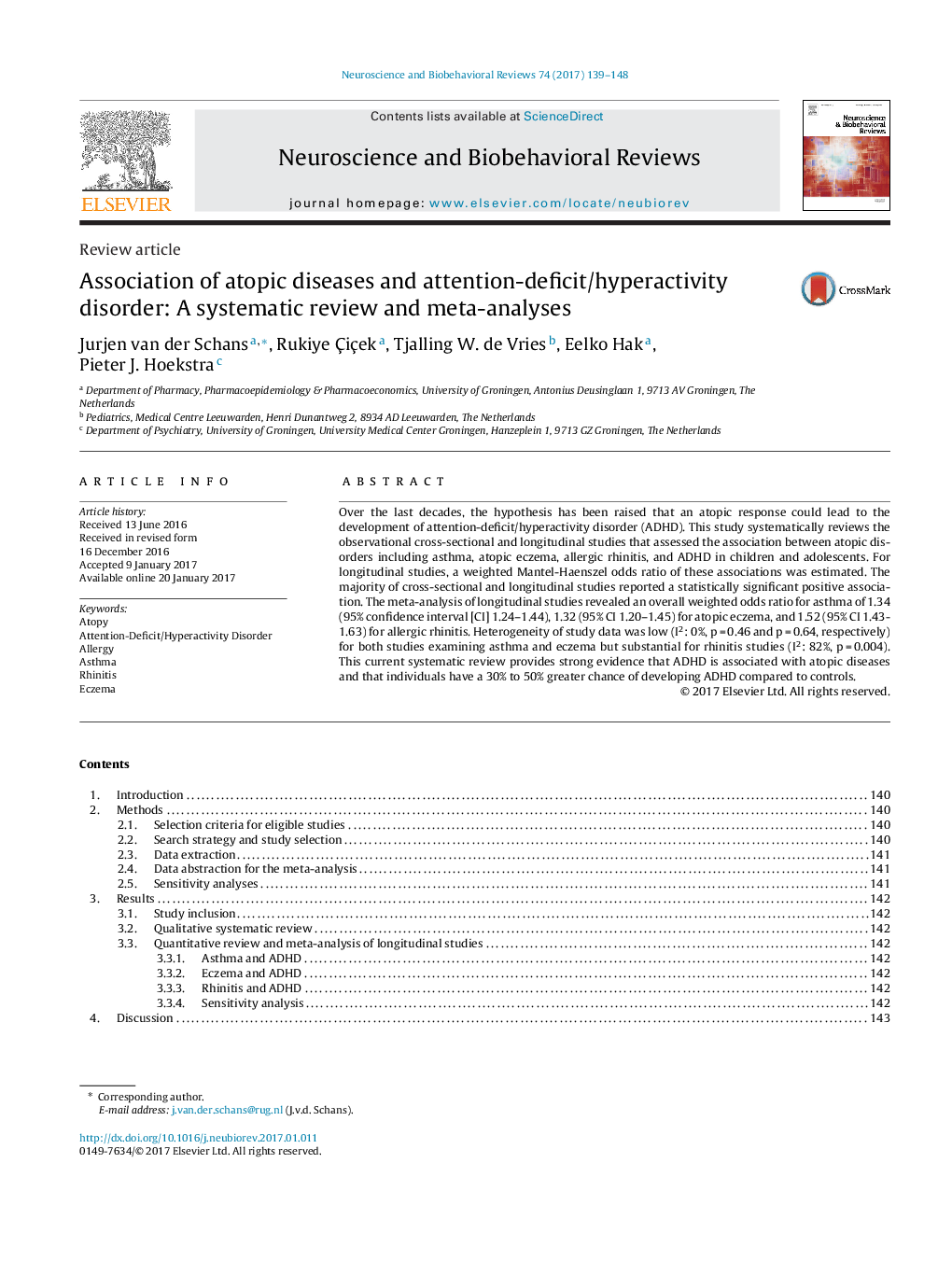| Article ID | Journal | Published Year | Pages | File Type |
|---|---|---|---|---|
| 5043703 | Neuroscience & Biobehavioral Reviews | 2017 | 10 Pages |
â¢Asthma, eczema, and rhinitis, are independently associated with ADHD in childhood.â¢Children with atopy have 30% to 50% higher odds of developing ADHD later in life.â¢Insight into the underlying working mechanism could improve care for both diseases.
Over the last decades, the hypothesis has been raised that an atopic response could lead to the development of attention-deficit/hyperactivity disorder (ADHD). This study systematically reviews the observational cross-sectional and longitudinal studies that assessed the association between atopic disorders including asthma, atopic eczema, allergic rhinitis, and ADHD in children and adolescents. For longitudinal studies, a weighted Mantel-Haenszel odds ratio of these associations was estimated. The majority of cross-sectional and longitudinal studies reported a statistically significant positive association. The meta-analysis of longitudinal studies revealed an overall weighted odds ratio for asthma of 1.34 (95% confidence interval [CI] 1.24-1.44), 1.32 (95% CI 1.20-1.45) for atopic eczema, and 1.52 (95% CI 1.43-1.63) for allergic rhinitis. Heterogeneity of study data was low (I2: 0%, p = 0.46 and p = 0.64, respectively) for both studies examining asthma and eczema but substantial for rhinitis studies (I2: 82%, p = 0.004). This current systematic review provides strong evidence that ADHD is associated with atopic diseases and that individuals have a 30% to 50% greater chance of developing ADHD compared to controls.
